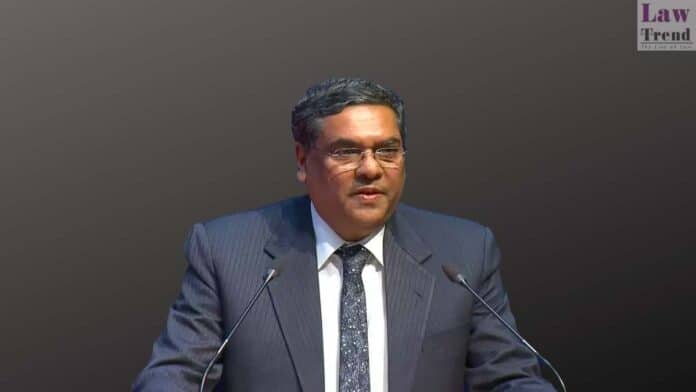In a compelling address during the Human Rights Day celebrations organized by the National Legal Services Authority (NALSA), Chief Justice of India Sanjiv Khanna emphasized the need for a compassionate and humane justice system, calling for significant reforms in criminal courts and the decolonization of laws.
Chief Justice Khanna, who also serves as the patron-in-chief of NALSA, spoke about the fundamental nature of human rights as the cornerstone of societal peace and justice. He highlighted the urgent need for reform within the criminal justice sector, stating, “Criminal courts are the areas which require a lot of emphasis. This requires a lot of reform. The laws require a change. We have decriminalized a number of laws, but a lot of work is still in progress.”
A major concern raised by CJI Khanna was the chronic issue of overcrowding in jails, which he noted adversely affects undertrial prisoners, who currently exceed the national jail capacity. With 5.19 lakh prisoners lodged against a capacity of 4.36 lakh, the Chief Justice pointed out the severe societal disconnection and criminalization that results from such conditions, complicating the reintegration process for those involved.
In his speech, CJI Khanna lauded the introduction of Section 479 of the Bharatiya Nagarik Suraksha Sanhita, which limits the maximum detention period for undertrial prisoners, as a progressive move. “It adopts a human-centric approach, allowing first-time offenders to be released if they have served one-third of their potential maximum punishment period in custody,” he explained, emphasizing that prolonged detention undermines the presumption of innocence and traps the disadvantaged in a cycle of societal exclusion.
The event saw attendance from notable judiciary figures, including the Minister of State for Law and Justice, Arjun Ram Meghwal, and Justice B R Gavai, executive chairman of NALSA. Also present were Justice Surya Kant, chairman of the Supreme Court Legal Services Committee, and several judges from the apex court, the Delhi High Court, and the trial court.




